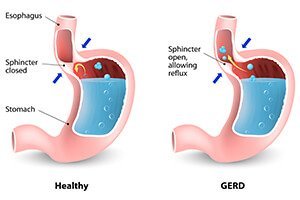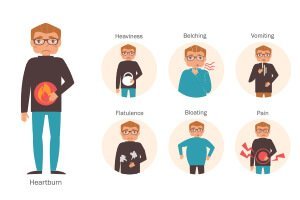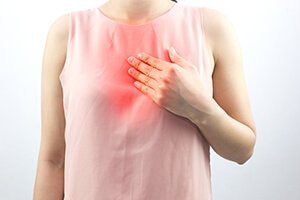Yashoda Hospitals > Diseases & Treatments > Gastroenterology > Gastritis and Gastrointestinal Reflux Diseases
Gastritis and Gastrointestinal Reflux Diseases
Gastritis, esophagitis, GERD, Barret’s esophagus
Stomach fluids can affect the tissue lining in the stomach. Acid flow to esophagus due to acid reflux (backflow or upward movement of acidic fluids) can lead to irritation and soreness in the lining of esophagus also. Inflammation, soreness and erosion of the inner lining of the digestive system due to stomach acids are grouped as gastritis and gastrointestinal reflux diseases.
What is gastritis?
An inflammation, soreness or erosion of the inner lining of the stomach is called gastritis. This inflammation can occur for short-term (acute) or long-term (chronic). Based on the location and nature of gastritis, it is of 4 types:-
Pangastritis – Gastritis affecting entire stomach
Antral gastritis – Gastritis of antrum, lower portion the of stomach
Erosive gastritis – Over extended exposure to stomach acids, irritation can progress to damage and erosion of inner lining. Based on the extent of erosion, acute gastritis may either be superficial erosive gastritis or deep erosive gastritis.
Hemorrhagic gastritis – In extreme cases, erosion may be accompanied with bleeding and thus called as acute hemorrhagic gastritis.




 Appointment
Appointment WhatsApp
WhatsApp Call
Call More
More

